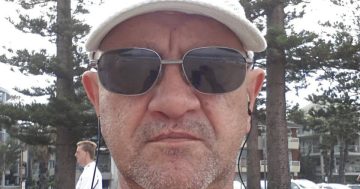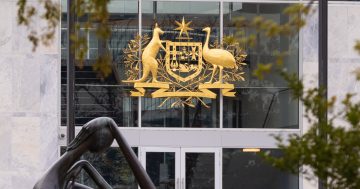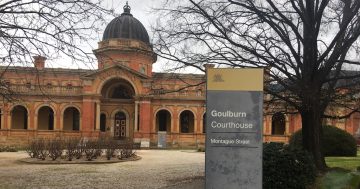
Scott John White approaches Canberra’s courts in 2021. Photo: Albert McKnight.
It would have been “surprising” if a former police officer was found not guilty of lying during a fake rape case, a justice said when announcing he had failed in his attempt to appeal his conviction.
An ACT Supreme Court jury had found Scott John White guilty of making a false statement in a legal proceeding in a 2021 trial, before he was sentenced the next year to 18 months’ jail, suspended for a good behaviour order.
He was found to have lied about the use of condoms with his then-girlfriend Sarah-Jane Parkinson when he was called as a witness in a court hearing against her in July 2015.
Parkinson had been accused of making up fake allegations of rape and assault against her former partner who had been arrested, refused bail and spent months in jail after she reported the false complaint.
She went on to plead guilty to making a false accusation and served a jail sentence.
During the hearing, White claimed he and Parkinson had never used condoms, but this was false.
The issue of condoms had been raised because a condom formed part of Parkinson’s complaint, which White was aware of.
After Parkinson accused her former partner of attacking her at her house, police searched the backyard and found a condom packet near a bin.
White appealed his conviction to the ACT Court of Appeal arguing in part that the jury’s verdict was unreasonable due to what evidence had been provided, but this was unanimously dismissed by the court’s three justices on Thursday (2 February).
Chief Justice Lucy McCallum said the single issue in his trial was his state of mind when he claimed to have never used condoms with Parkinson and found the prosecution’s evidence on this topic to be “damning”.
“Based on my reading of the record of the trial, I consider that it was well open to the jury to be satisfied beyond reasonable doubt that the appellant was guilty of [the charge],” she said.
“Indeed, a verdict of not guilty on that count would have been surprising.”
White said he did not think the use of condoms for anal sex was “relevant” and he was trained to give “relevant evidence”.
In the appeal, the prosecution argued this suggested he did think about the issue of relevance and was “highly selective in his responses” for Parkinson’s hearing. Chief Justice McCallum agreed.
“As submitted by the Crown, the obvious inference is that the appellant knew or at least considered the possibility that his answer was untrue, but made a deliberate decision to proceed anyway,” she said.
The court’s other justices, David Mossop and Berna Collier, said White’s professional background as a police officer meant he was well aware of the duty to give truthful and accurate evidence before a court.




















We give the impression that paying board members thousands of dollars in “allowances” and… View